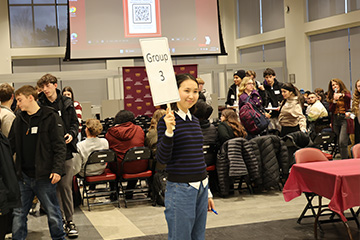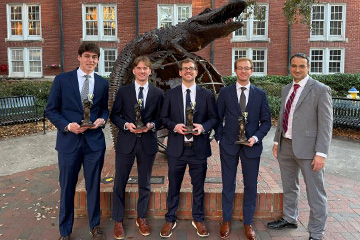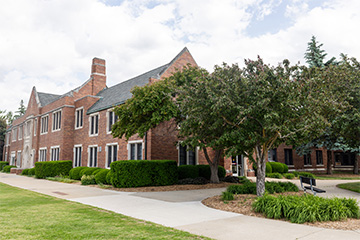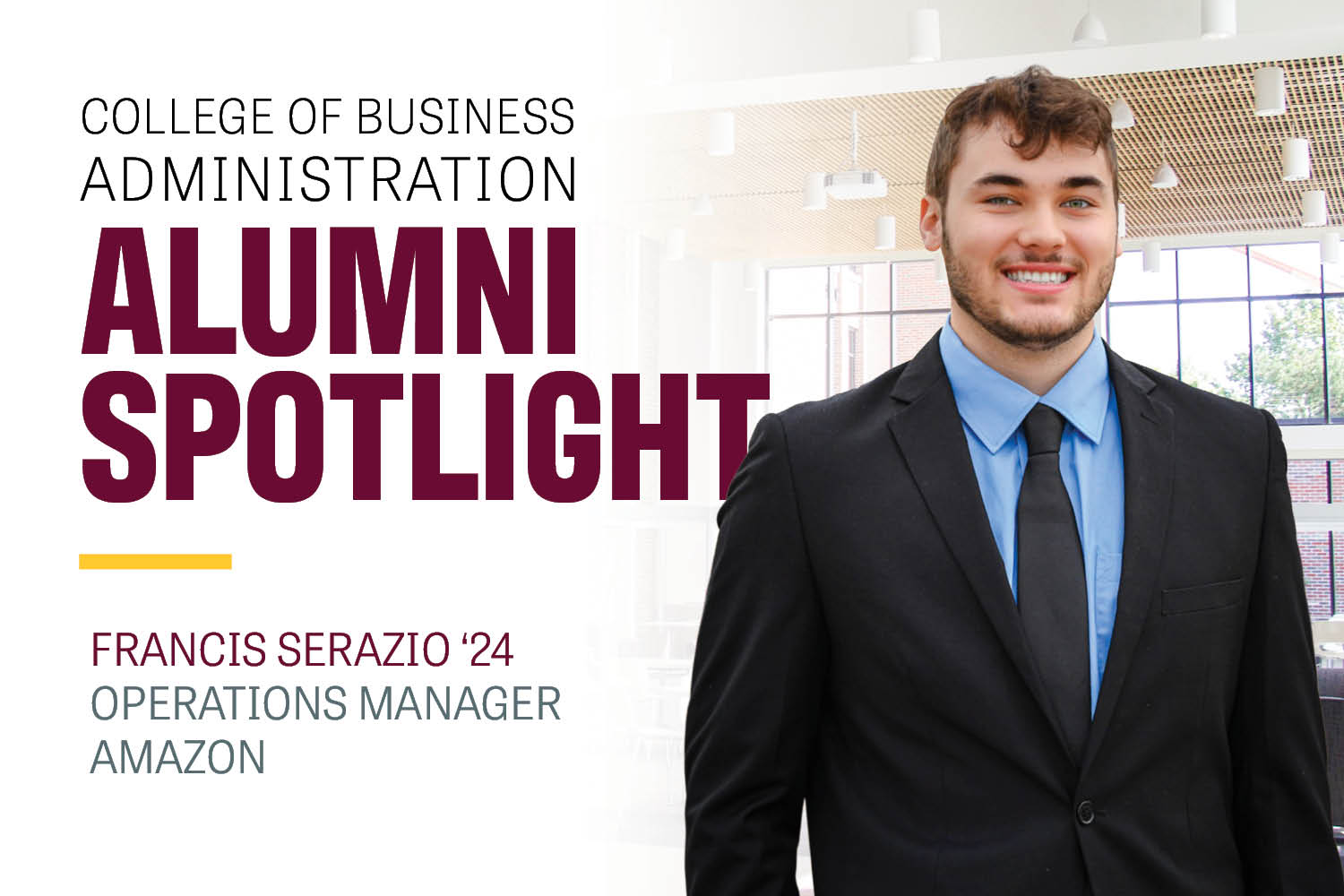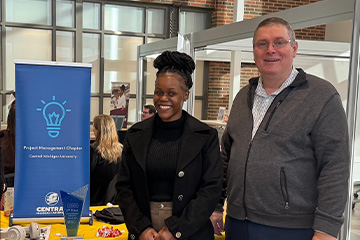Syed Muhammad Sarim represents CMU at Global Ecosystem Hackathon
Graduate student blends technology, teamwork, and innovation to take CMU’s Celonis partnership global
For Syed Muhammad Sarim, a second-semester master’s student in information systems, the road to an international competition began with a class requirement — and an opportunity to put new skills into action.
“In the BIS 647 course, we discussed how enterprise systems like SAP record event data and how tools such as Celonis can use that data to find inefficiencies and bottlenecks in workflows,” Sarim said. “In our first semester, we were required to do certifications from Celonis. Then, in our second semester, Professor Vishal Shah — who’s our professor for the BIS 647 course and also the Director of the SAP University Alliance Program & Corporate Outreach — sent an email about this hackathon going on. I signed up, and Celonis later paired me with Bloomfilter.AI.”
He added that the certifications were a key part of his learning experience and gave him the skills needed to excel in the initial regional hackathon event on September 11, 2025. Where he and teammate, Valentina Soto-Rodriguez from Columbia University in New York, won the North America regional title, earning the opportunity to present their project on a global stage, Nov. 4–5, following an orientation on Nov. 3.
“These certifications gave me practical experience with Celonis tools — learning how to analyze business data, create dashboards, and use process insights to improve performance,” Sarim said. “This hands-on learning helped me see how companies can use their data to make better decisions and fix inefficiencies in their processes. I completed two certifications through Celonis Academy: Celonis Rising Business Star and Celonis Rising Technical Star.”
The 4th Global Ecosystem Hackathon final event, hosted by Celonis in Munich, brings together students and professionals to use process mining technology to solve real-world business challenges. Sarim and Soto-Rodriguez will once again take the stage to present their solution to an international audience.
Turning data into decisions
From the start, Sarim was drawn to the innovative nature of the challenge. “From my understanding and my experience, Celonis wanted students from different parts of the country and professionals to work with companies that are partnered with Celonis to figure out innovative solutions — how they can use the Celonis platform to make really creative and useful business decisions,” he said.
Sarim’s team collaborated with Bloomfilter.AI, where they developed an agent optimizer designed to help companies make their AI tools more transparent and accurate. He explained how their project connected artificial intelligence with process mining, “A lot of companies nowadays are rushing toward AI and building AI agents to help them come up with answers for their processes,” he said. “But a lot of times these agents are not really accurate because there’s no transparency — it doesn’t show how it got there.
“Our thought was that if we create an agent optimizer, it will collect data from Celonis and feed it to the agent so the agent can make decisions based on the data stored in the Celonis platform,” Sarim explained. “Using this method, the agent could rework itself or train itself instead of making the same mistakes other AI agents were making.”
The project was guided by industry mentors Andrew Wolfe, CEO of Bloomfilter.AI, and Kristina Kaldon and Angela-Sophia Gebert from the Celonis Academic Alliance.
A fast-paced, high-stakes experience
Hackathons move quickly, and Sarim’s first experience was no exception. “It was tough, because it was my first time experiencing a hackathon,” he said. “We started at 11 and we weren’t introduced to our project any time before the hackathon. We had literally no idea what we were going to do.”
Once the team met with company leaders, everything accelerated. “At 11 a.m. we had a meeting with the team CEO and Stefano Pizzoli from Celonis who assigned us our project,” he said. “Then we worked from 11 a.m. to around 4:30 or 5 p.m.—really back-to-back. It was stressful at times, to say the least.”
Despite the challenge, the experience proved invaluable. “At 5 p.m. we had a presentation,” he said. “All of us as a team presented to judges. It was a really cool experience.”
Guided by mentorship and opportunity
Sarim credits business information systems faculty member Vishal Shah for introducing him to Celonis and consistently helping students find opportunities to build their skills. “I must mention how resourceful and genuinely helpful Professor Vishal has been throughout my time here at CMU,” he said. “He sends out tons of emails every week about resources, competitions, and certifications so students can do extra things outside of the classroom to build skills.”
When he received the email about the hackathon, Sarim said he immediately saw it as a chance to grow. “I was so excited because we have to make sure that we stand out, and hackathons are a really good way of doing that,” he said. “It gives you great experience—you work in teams from different universities and industries. It helps you understand different case studies and how to collaborate.”
Representing CMU on the global stage
As Sarim prepares to represent CMU in Munich, he’s grateful for how far his team has come.
In Munich, his team will compete against other regional winners from around the world. “All the regional winners will be there showcasing their projects,” he said. “We’ll be giving a presentation on ours, and then a final winner will be decided. That’s my understanding of the conference—it’s going to be big.”
A proud moment for CMU
Whether or not they win the global title, Sarim said he’s already proud of what his team has achieved. “I’m already really content with our achievement right now,” he said. “Winning the North America regional title is also a huge thing.”
He hopes their success brings recognition to CMU and inspires other students to take similar chances. “I hope to bring some recognition to CMU also,” he said. “I’m optimistic. Let’s see what happens. My team is really optimistic about our chances. It’s been really cool working with tech CEOs—how motivating and quick they are, and how vast their knowledge is.”
